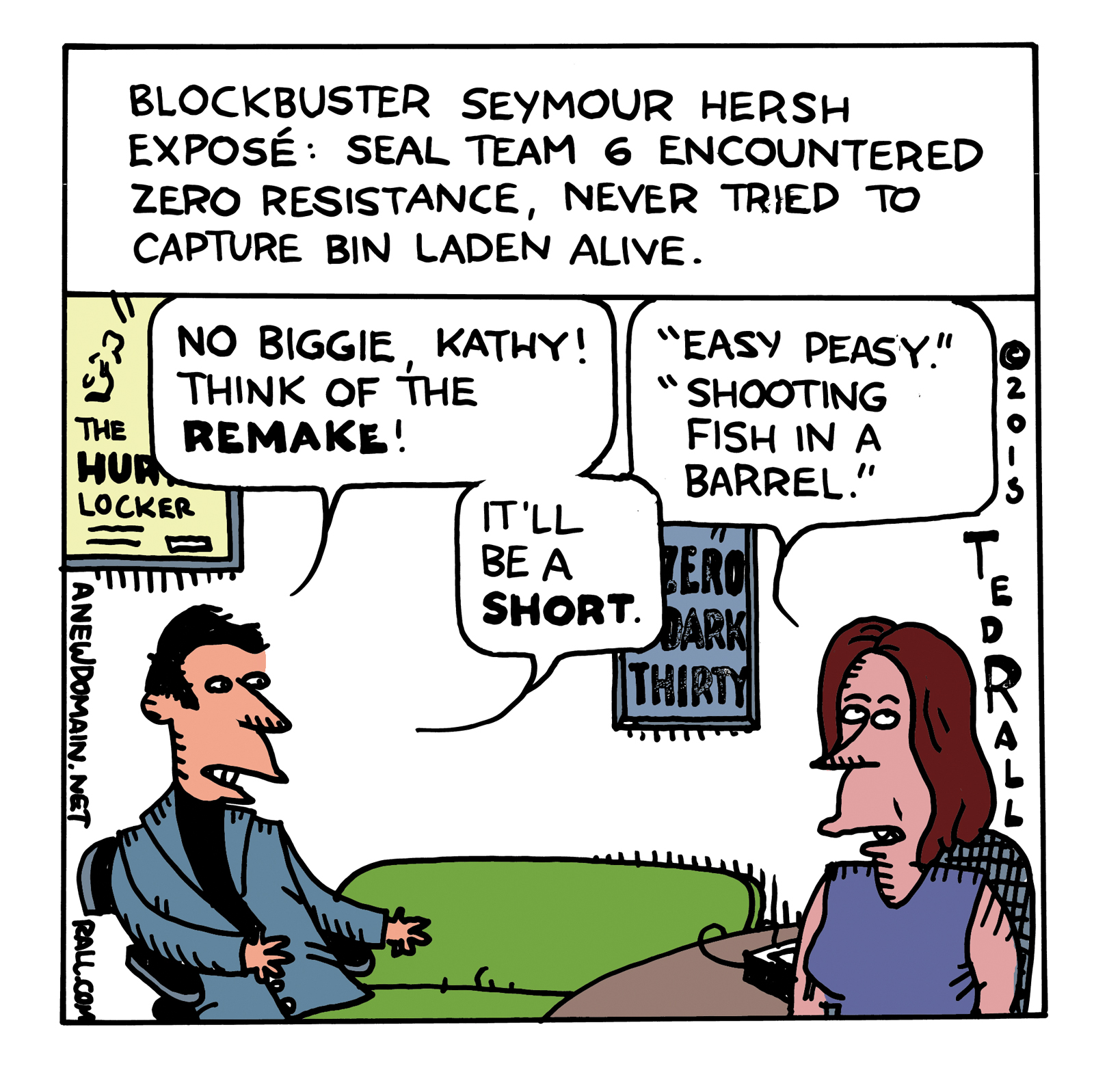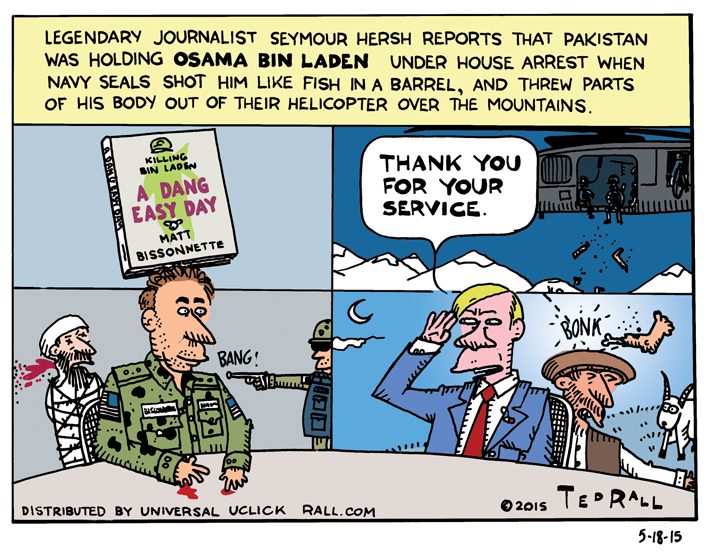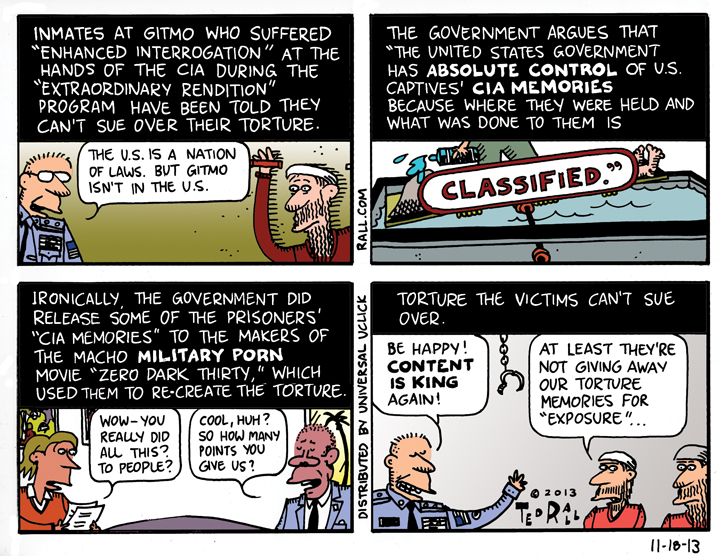Originally published by ANewDomain.net:
Seymour Hersh has published a blockbuster expose that asserts that most of the narrative of the movie “Zero Dark Thirty” was wrong. Bin Laden was a prisoner of the ISI since 2006. He never resisted. Seal Team Six was never in danger. The body was never buried at sea, nor were there Muslim rites. Will Kathryn Bigelow remake her film?





